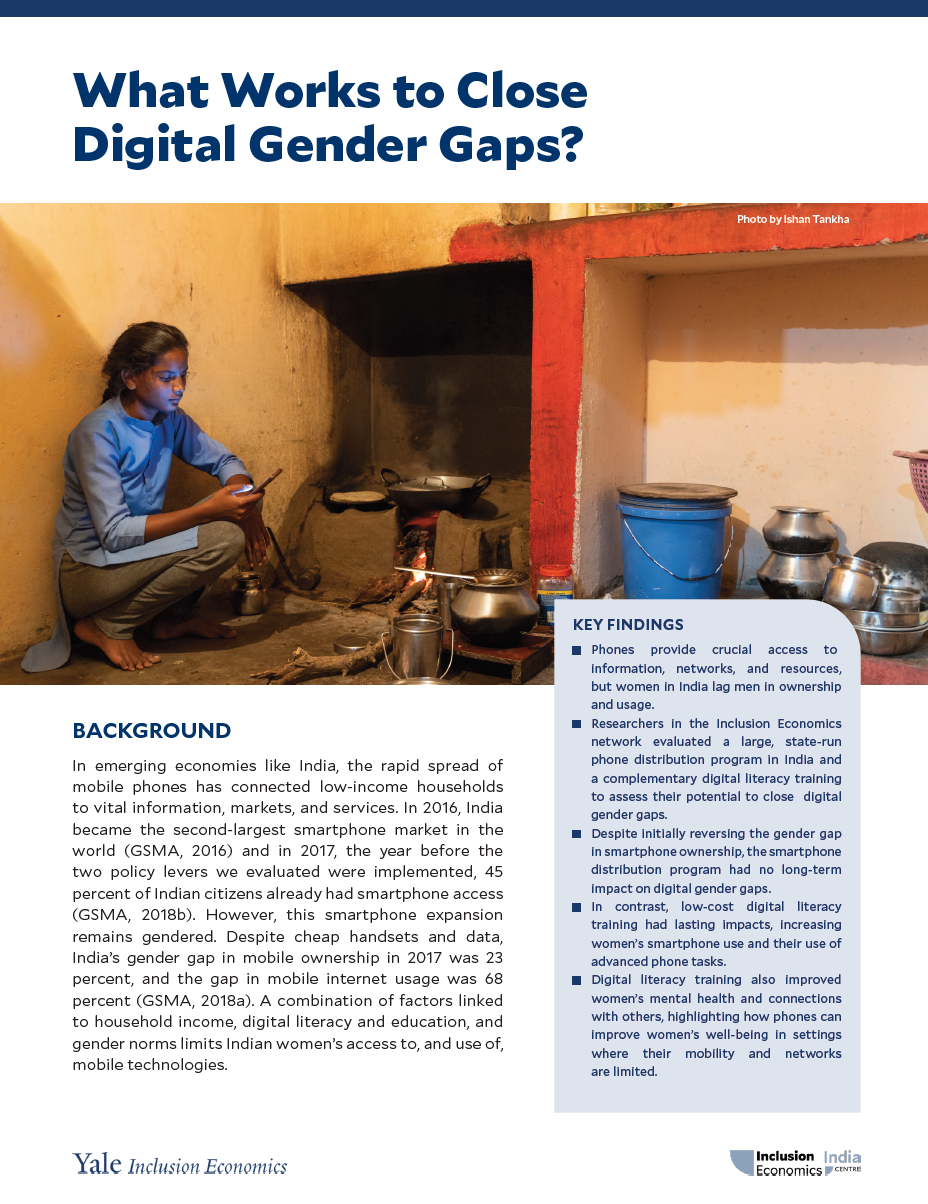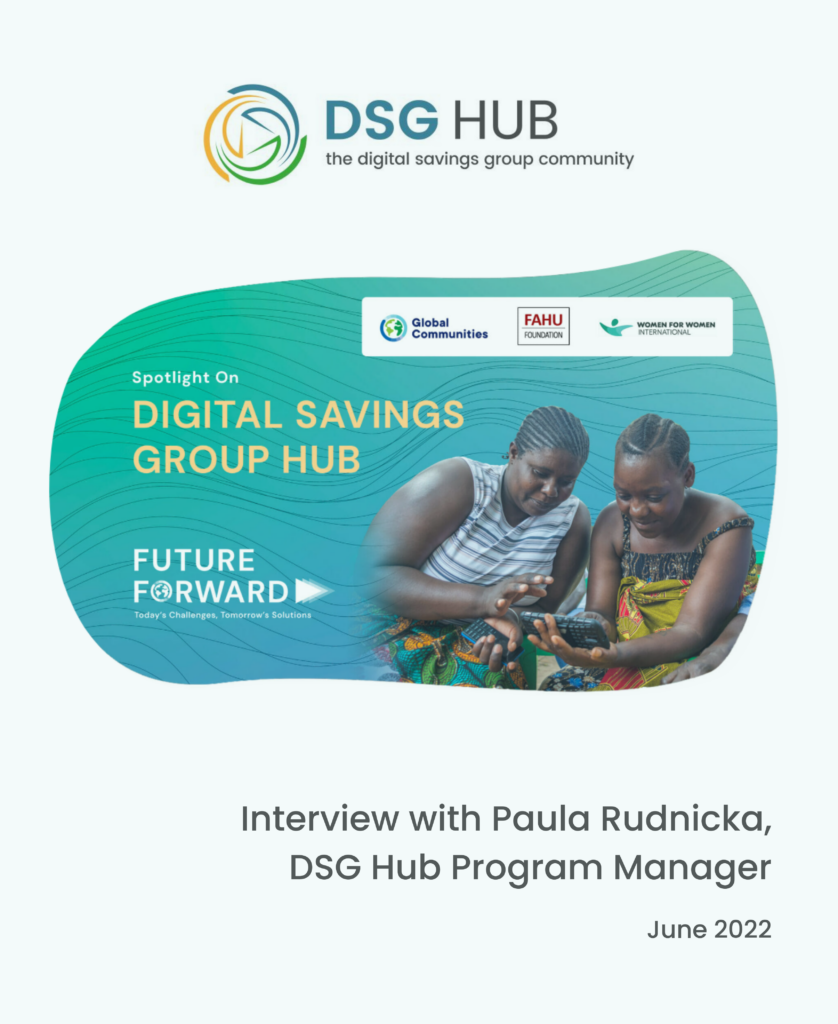In rural India, researchers from Yale Inclusion Economics studied the effectiveness of two major interventions aimed at closing the digital gender gap: a state-run smartphone distribution program and a complementary digital literacy training. While the distribution of over two million free smartphones initially increased women’s phone ownership and advanced usage, these gains faded over time. In contrast, short, low-cost digital literacy trainings had a more durable effect—boosting women’s use of smartphones for advanced tasks and strengthening their social connections and mental health years later.
The study offers practical insights for policymakers and development practitioners: technology access alone is not enough. Programs must also address gendered barriers to usage—like digital literacy, confidence, and social norms—to create meaningful and lasting inclusion.
What Works to Close Digital Gender Gaps? presents key findings, policy lessons, and implications for digital inclusion efforts in low-resource settings.




